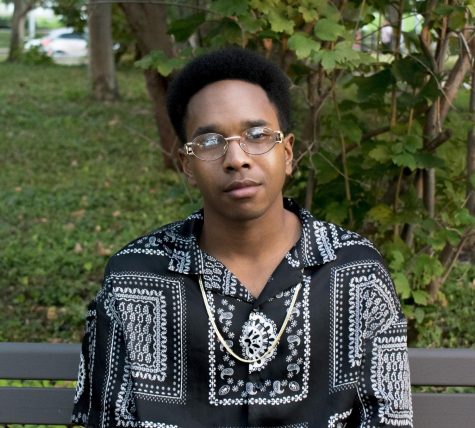Smith: It’s more than police shootings

October 7, 2016
The Cleveland Division of Police (CDP) force has been under a microscope recently. They have worked and tried to establish a relationship with the community in spite of controversial events, but their efforts might come undone.
While the Black Shield, the union that represents the city’s African-American police officers, refused to do so, the Cleveland Police Patrolmen’s Association, the city’s police union, has endorsed Donald Trump in his run for the Oval Office. This announcement has been made despite the fact that Trump has recently been advocating for stop-and-frisk to make a return to Chicago, where the policy is already in use.
Since Trump cannot bring something back that never left, he could be suggesting bringing back New York’s style of the policy, which was found unconstitutional as applied due to racial profiling by a federal judge 19 years after its implementation.
Stop-and-frisk as a general concept is still constitutional as found in 1968’s Terry v. Ohio. It allows police to stop suspicious individuals or individuals in the act of committing a crime, but the NYPD racially profiled individuals and violated their constitutional rights, as Latino and Black males made up the vast majority of stops.
How does Trump plan on “bringing back” the stop and frisk from New York without replicating that kind of racism?
Maybe I have not been listening close enough, but I haven’t heard him explain how he would change it.
Or maybe he’s not thinking of changing it at all.
It’s ridiculous to think that people could be stopped and frisked for what is essentially being a minority at the wrong place and the wrong time. It’s even more ridiculous that the police union would endorse a man in spite of this.
I’m not saying the Cleveland police want to bring that policy here, but they are okay with aligning themselves with a man who says so. These type of actions have consequences, especially when their relationship with the community is already damaged.
I talked to Commander Patrick Stephens of the third Cleveland police district a year ago. He believed that the majority of Clevelanders who lived in areas with high crime rates didn’t want any trouble and just wanted their streets to be safe.
That vision does not include being stopped and harassed on the street because you happen to live in an area where crime is prevalent. We neither live in a police state, nor should police have the right to search anyone just because they please.
Trump’s stance on the policy does affirm one thing: Criticisms of policing tactics are important outside of fatal instances.
The discussion of systematic racism is focused so much on police brutality and shootings that little attention is dedicated to the many interactions that people have with officers.
It is important to note that police do good things in the community, but those deeds do not provide a sheath to protect the department, or police as a whole, from criticism. This is neither an all-or-nothing scenario, nor should it be.
In a study done in East St. Louis, Illinois, researchers found that the community did not get along too well with the police officers.
But why? The officers never killed anyone.
It’s not just incidents of someone being shot that frustrate residents. The officers engaged in illegal drug trades, solicited women for their numbers and failed to make the residents feel protected.
These issues caused tension in the community. Similarly, the Ferguson unrest was not solely about Michael Brown, though his death was the driving force. Investigations by the United States Department of Justice showed that the police had been sending racist jokes to one another, as well as disproportionately levying fines and infractions against African-Americans.
And yet, with all that we have seen, the conversation has yet to continue. The opposition refuses to take these investigations seriously. We are still talking about the name “Black Lives Matter,” which some choose to interpret as only Black Lives Matter. Instead of arguing against their message, it seems that people are more interested in disputing the name, nearly three years after the formation of the group.
In this environment, where we have seen such tension between police and citizens, is it a good idea to support a man whose ideas will likely make things worse?
In December 2014, the U.S. Department of Justice concluded that they “have reasonable cause to believe that CDP engages in a pattern or practice of the use of excessive force in violation of the Fourth Amendment of the United States Constitution.”
Supporting a man who is praising a policy that was found to be racist, can cause people to perceive the department in an even more negative light which may worsen tensions. If the CDP and the police as a whole want to improve the relationship between the communities, then they need to avoid any more controversial incidents involving constitutional rights.



